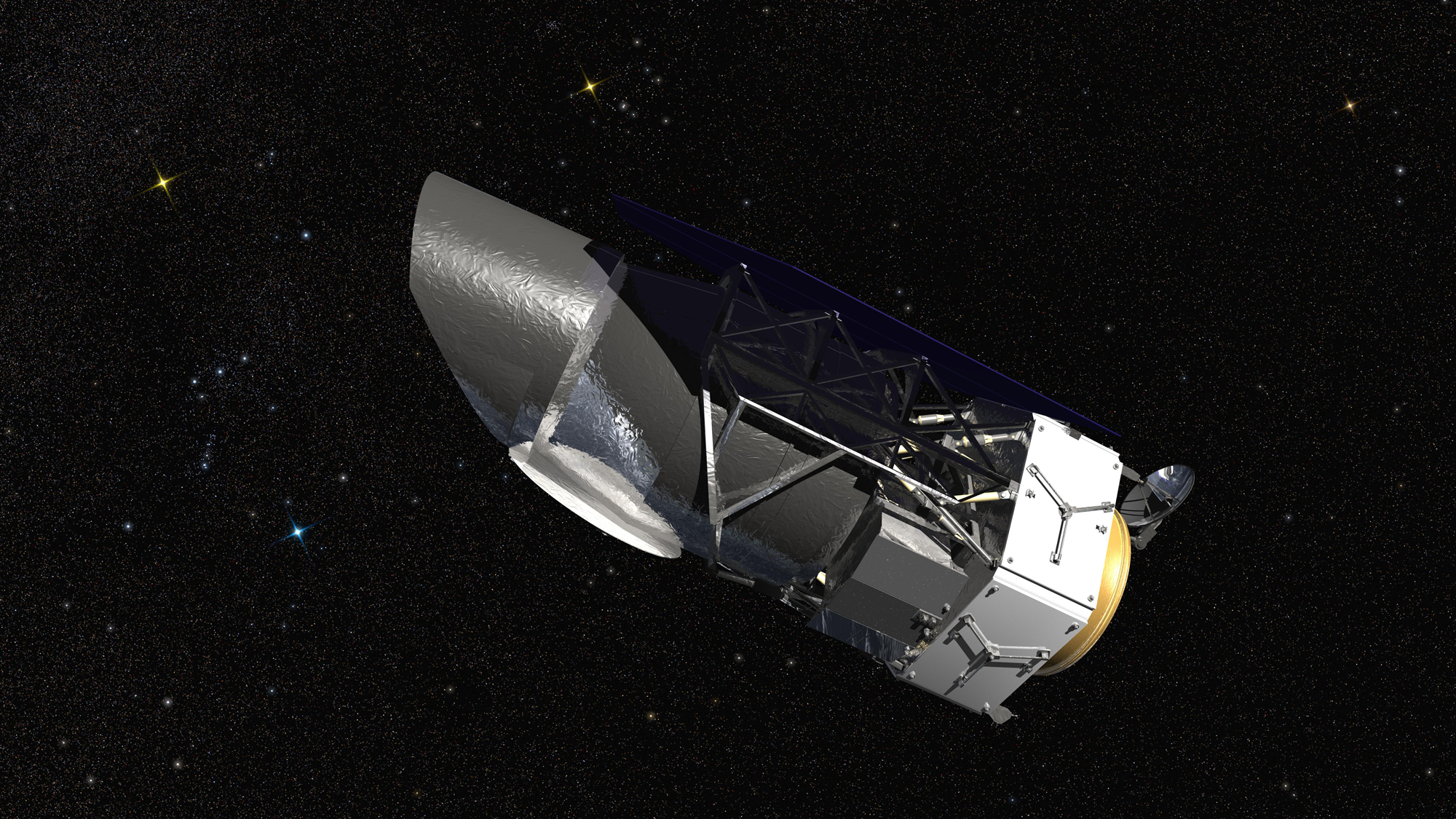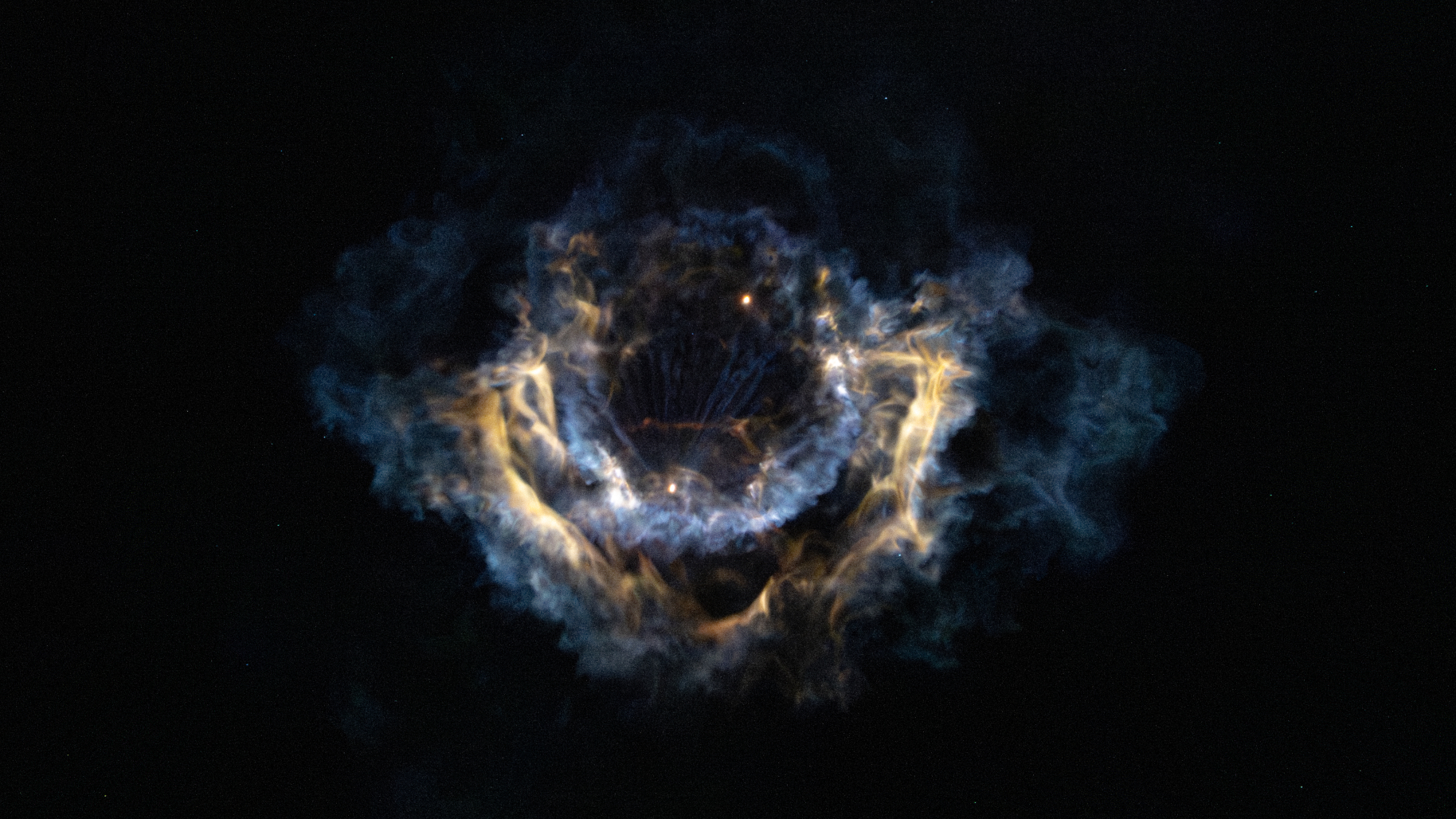Trump's NASA Budget Would Cancel Space Telescope & 5 Earth Science Missions
Breaking space news, the latest updates on rocket launches, skywatching events and more!
You are now subscribed
Your newsletter sign-up was successful
Want to add more newsletters?

Delivered daily
Daily Newsletter
Breaking space news, the latest updates on rocket launches, skywatching events and more!

Once a month
Watch This Space
Sign up to our monthly entertainment newsletter to keep up with all our coverage of the latest sci-fi and space movies, tv shows, games and books.

Once a week
Night Sky This Week
Discover this week's must-see night sky events, moon phases, and stunning astrophotos. Sign up for our skywatching newsletter and explore the universe with us!

Twice a month
Strange New Words
Space.com's Sci-Fi Reader's Club. Read a sci-fi short story every month and join a virtual community of fellow science fiction fans!
The Trump administration's budget request for fiscal year 2019 calls for work on a major NASA space observatory and five Earth-science missions to be canceled. NASA's Office of Education would also be terminated.
The Wide Field Infrared Survey Telescope (WFIRST), which would have used an existing spy satellite retired from the National Reconnaissance Office, would no longer receive funding. According to the White House's 2019 budget request, released today (Feb. 12), WFIRST would have required a significant funding increase. Instead, the budget proposal requests that the funding go to smaller astrophysics missions.
The Plankton, Aerosol, Cloud, ocean Ecosystem (PACE) satellite; the Orbiting Carbon Observatory 3 (OCO-3) experiment; the Climate Absolute Radiance and Refractivity Observatory (CLARREO) Pathfinder; the Radiation Budget Instrument (RBI), which was canceled in January; and the Earth-viewing instruments of the Deep Space Climate Observatory (DSCOVR) mission would also be canceled under the Trump administration's budget proposal. The five climate missions were also nixed in the administration's 2018 budget request.
WFIRST would have given scientists 100 times the field of view of the Hubble Space Telescope in infrared light, letting scientists investigate dark energy, dark matter, the evolution of the universe and distant planets around other stars. NASA was in the middle of a review for WFIRST after an independent analysis found that the space telescope could cost at least $3.6 billion; NASA was trying to reduce the cost to $3.2 billion.
"The Budget redirects funding from [WFIRST] to completed research including smaller, principal-investigator-led astrophysics missions," White House officials wrote in the budget document. "These missions have a history of providing high scientific impact while training the next generation of scientists and engineers." The $8.8 billion James Webb Space Telescope, which will also survey the universe's infrared light but with a narrower field of view, still receives funding under the budget request, they added.
The total budget for Earth science would be $1.78 billion, down from $1.9 billion last year, according to NASA's overview of the budget request. NASA's overall science budget increased from $5.76 billion to $5.9 billion, with the gains going mostly to planetary science, according to NASA's document.
SpaceNews reported last year that in 2018 NASA had planned to spend $27.9 million for CLARREO Pathfinder, $9.5 million for OCO-3 and $1.2 million for DSCOVR. No projected budget was given for PACE, as it was still in its early stages. The DSCOVR satellite is already in orbit; the satellite would continue to monitor space weather.
Breaking space news, the latest updates on rocket launches, skywatching events and more!
CLARREO Pathfinder was slated to launch to the International Space Station around 2020 to test technology for use on a future CLARREO mission to gather data to improve climate models. OCO-3 also would have been installed on the space station; the mission would measure carbon dioxide in Earth's atmosphere and was slated to launch this year.
The PACE satellite would study clouds and aerosols in the atmosphere and monitor organic material in the oceans, and it was set to launch in late 2022. And the RBI, which would measure Earth's reflected sunlight and thermal radiation, was intended to fly on the Earth-tracking Joint Polar Satellite System 2 (JPSS-2), planned for launch in 2021. JPSS-1 launched successfully in November.
NASA's Education office, which received $100 million in 2017, would be eliminated under the budget request, although NASA Acting Administrator Robert Lightfoot said last year that the agency would continue outreach efforts in a focused way after such a cut.
Next, the US Senate and House of Representatives will pass budget resolutions addressing this request and negotiate to produce a final budget. Last year, the Office of Education received bipartisan support by lawmakers in the House and Senate when the Trump administration initially proposed its elimination.
Email Sarah Lewin at slewin@space.com or follow her @SarahExplains. Follow us @Spacedotcom, Facebook and Google+. Original article on Space.com.

Sarah Lewin started writing for Space.com in June of 2015 as a Staff Writer and became Associate Editor in 2019 . Her work has been featured by Scientific American, IEEE Spectrum, Quanta Magazine, Wired, The Scientist, Science Friday and WGBH's Inside NOVA. Sarah has an MA from NYU's Science, Health and Environmental Reporting Program and an AB in mathematics from Brown University. When not writing, reading or thinking about space, Sarah enjoys musical theatre and mathematical papercraft. She is currently Assistant News Editor at Scientific American. You can follow her on Twitter @SarahExplains.

